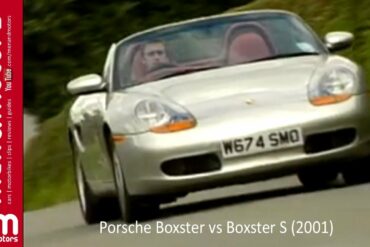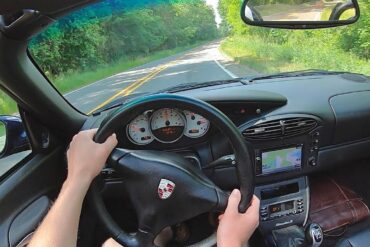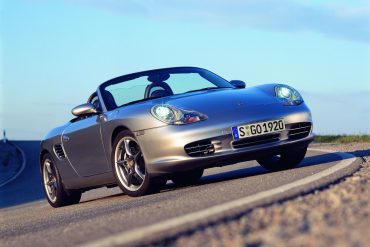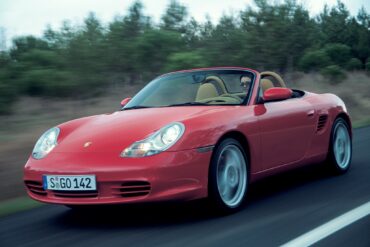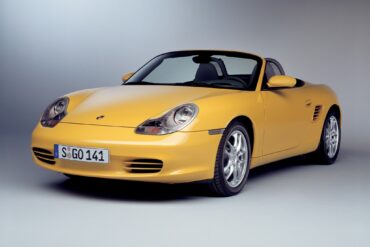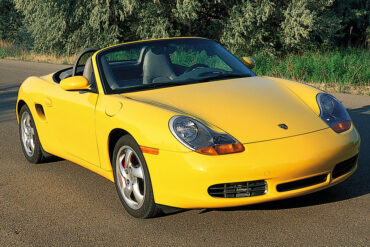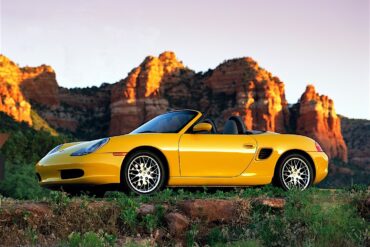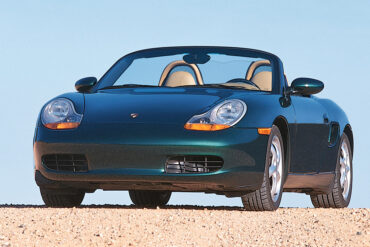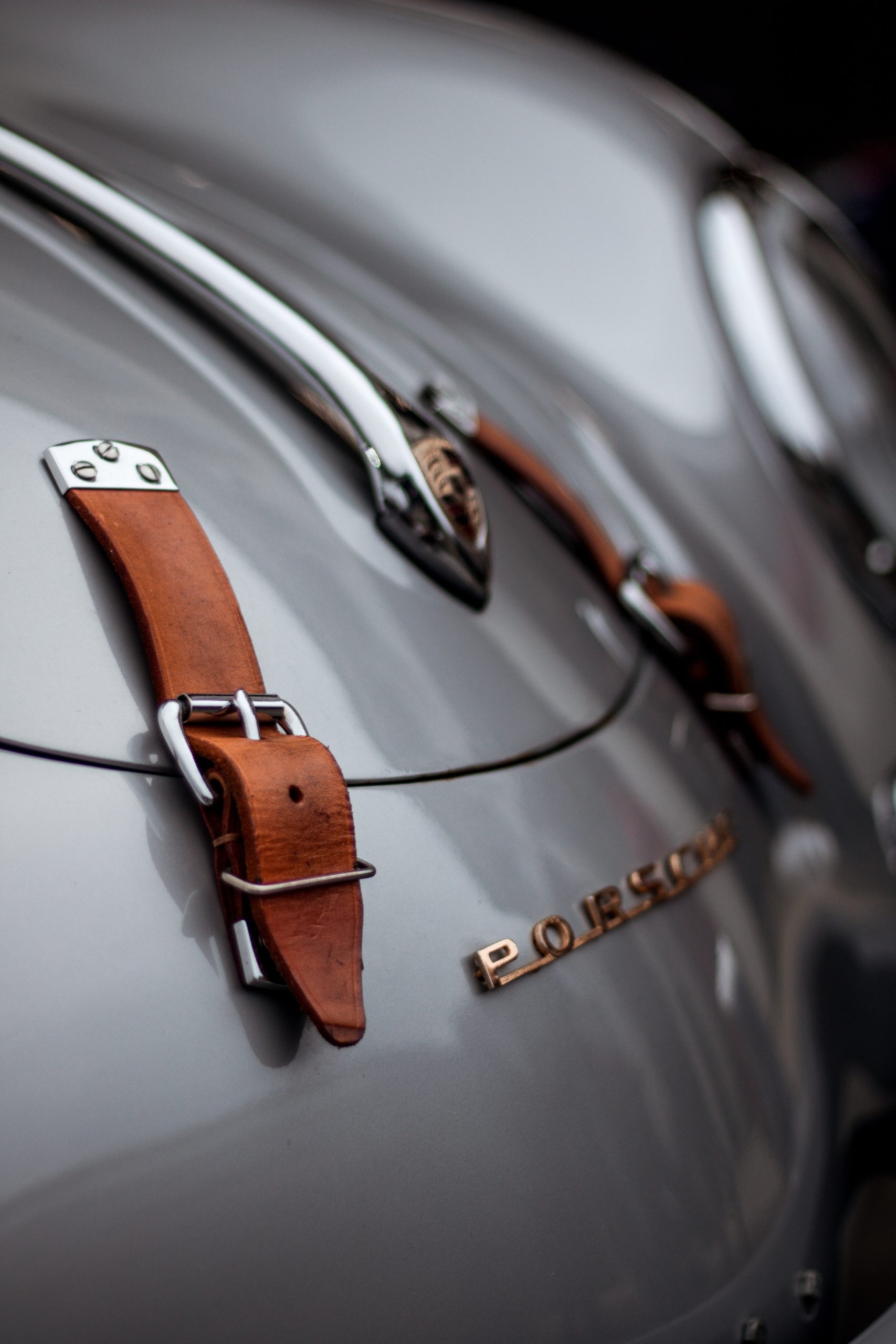First Generation – Porsche Boxster vs Boxster S Richard Hammond reviews and compares the Porsche Boxster and the Boxster S,...
POV on the Backroads In A 2001 Porsche Boxster S Love this video of a backroad run in a 2001...
In 2004, the Boxster S Special Edition, also called 550 Spyder Boxster S Special Edition was introduced with a production run of just 1,953 cars (paying homage to the 550 Spyder's year of introduction). 500 cars were made for the US Market. These were all painted in GT Silver Metallic, the same colour as the Carrera GT concept presented in 2000, and had unique cocoa-brown full-leather interior as standard with grey natural leather as a no-cost option.
The Boxster S was revised along with its Boxster version in 2003. From the outside, the 2002 Boxster S featured an apron with three air-intakes, one more than the non-S version. The 3.2-liter unit was installed in the Boxster since 2000, but after the facelift it was improved by 10 hp, reaching 258 hp. It was paired as standard with a 6-speed manual, or a 5-speed Tiptronic (automatic) as an option. As expected, the manual version was quicker and faster.
The first generation Boxster got a facelift and refresh for the 2003 model year. The 2003 Boxster came on the market with new engines and new options. It also had a new face, but not that different than the first generation. The result was more horsepower, the 2.7 liter now good for 225 bhp @ 6300 rpm and 192 ft lbs @ 4750 rpm. Power was up by 8 horsepower over the prior year model, while torque was unchanged. From the outside, the 2002 Boxster featured an apron with two air-intakes on the sides.
In 2000, Porsche gave us the Boxster S. With a 3.2 liter naturally aspirated Flat-6, it was good for 250 bhp and 225 ft lbs of torque, up by 25% on the base 2.7 liter Boxster. Hardward changes, a 6-speed gearbox and all this extra power and torque transformed the Boxster driving experience. From behind the wheel, the Boxster S rushes forward in a way that is missing from the base model, that torque increase really making itself known, especially in the midrange. 0 to 60 mph now takes 5.60 second (compared to 6.5 for the 2.7 L base model). Top speed is 161 mph and the quarter mile is 14.1 seconds.
While the original 986 Boxster was a sweet ride, its performance began to lag behind newer competitors like the Honda S2000. Powered by a 2.5-litre flat six-cylinder engine, the base model was upgraded to a 2.7-litre engine in the year 2000. The gearbox options in the Boxster 2.7 are the same as in 2.5, but they got new type designations due to improvements. Externally, the 986 Boxster 2.7 looks like Boxster 2.5. Inside the side airbags are standard and the plastic feeling has been reduced. The fuel tank is a larger 64-liter. Alcantara trim is available on the options list.
It was Porsche's first road vehicle to be originally designed as a roadster since the 914. The first-generation Boxster (the 986) was introduced in late 1996 as a 1997 model year car. The V-Series Boxster 2.5 rolled out in August 1996 from Porsche’s factory in Zuffenhausen, Germany. The design was heavily influenced by the 1993 Boxster Concept (which was a good thing). It was an instant success, becoming Porsche's biggest seller from its introduction in 1996 until the introduction of the Cayenne sport utility vehicle in 2003.


